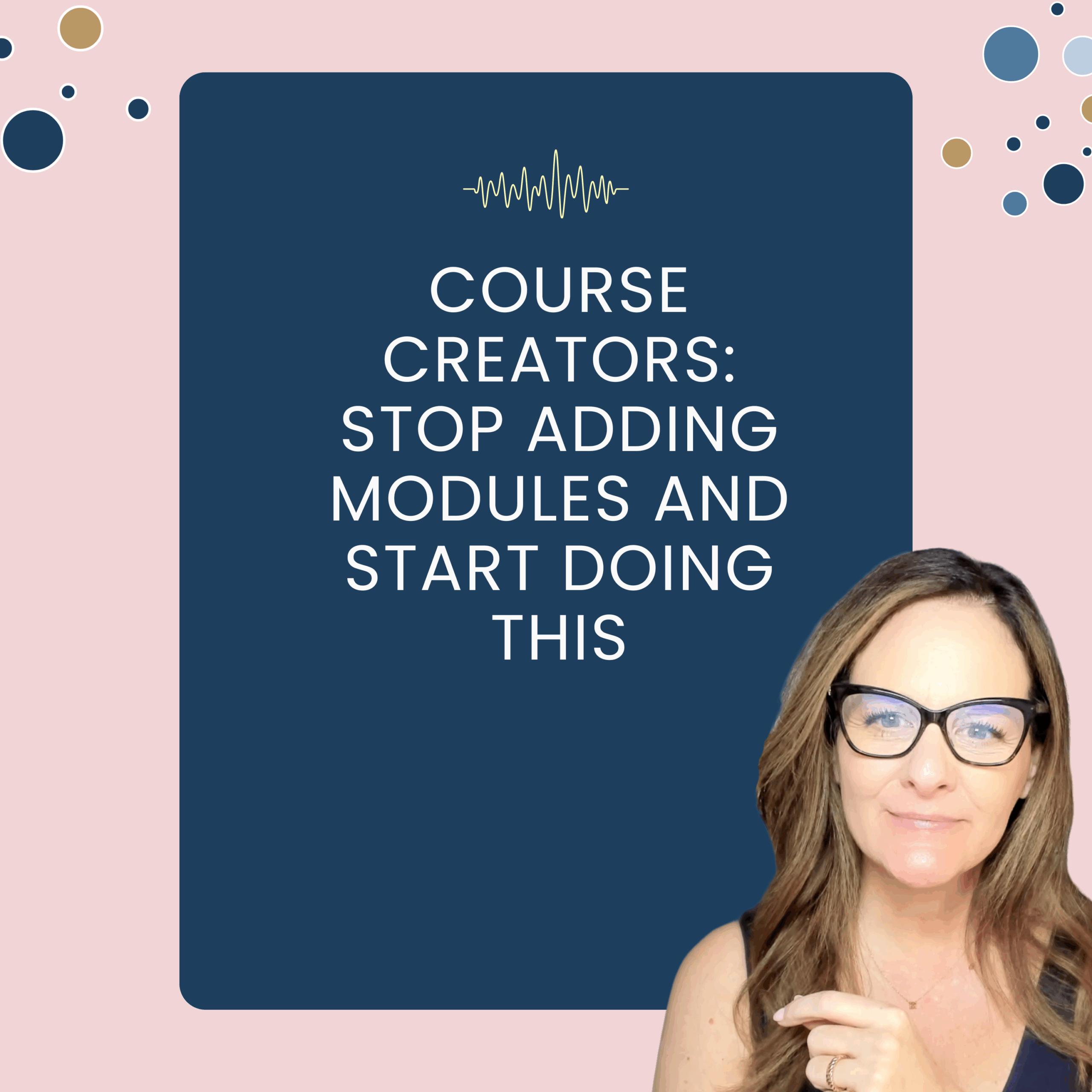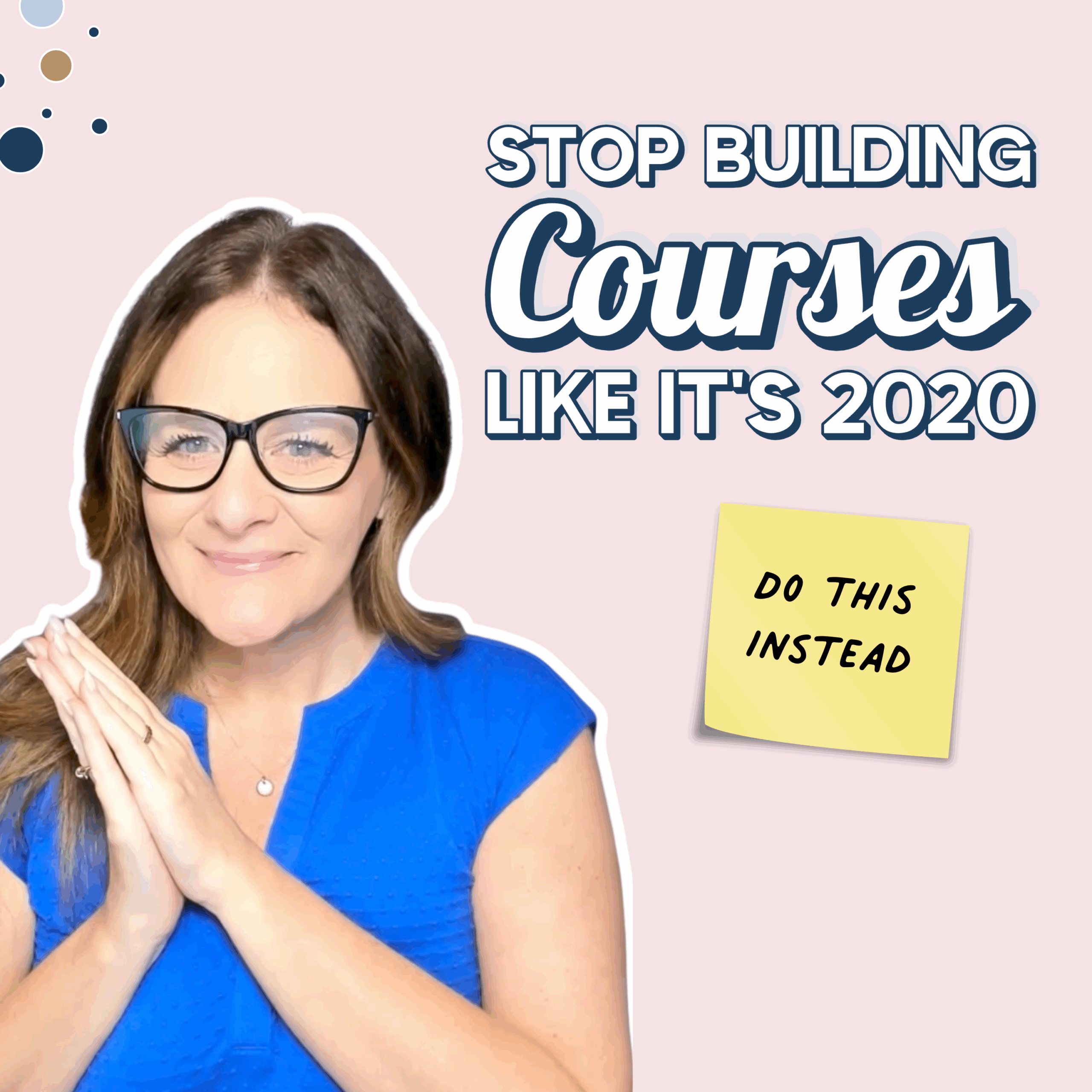I had a conversation with a client last month that honestly broke my heart.
She’s incredibly talented. Strategic thinker, beautiful work, clients love her. On paper, she should be thriving.
But when we got on Zoom, she looked exhausted. Not just “I had a busy week” exhausted. The kind of tired that comes from running on fumes for way too long.
She said something I’ll never forget:
“Rachel, I’m so tired of being the only person who understands what I’m trying to build. I Google everything. I figure everything out alone. And every time I hit a roadblock, I have to solve it by myself because nobody else gets it.”
Then she paused. “Sometimes I wonder if I’m just not cut out for this.”
I wanted to reach through the screen and shake her. Not because she was wrong to feel that way, but because she was blaming herself for a problem that had nothing to do with her capability.
She wasn’t failing. The model was failing her.
Because here’s what nobody tells you when you start a business: the solo grind isn’t a badge of honor. It’s what’s keeping most talented people stuck, burned out, and wondering why their business feels so much harder than it should.
What the Solo Grind Actually Looks Like
We’ve normalized this pattern so much we don’t even see it anymore:
You wake up. Check your inbox. Immediately start putting out fires.
- Client needs something. You handle it.
- Tech issue with your platform. You Google it and figure it out.
- Marketing isn’t working. You watch three YouTube videos and try something new.
You’re writing your own copy. Designing your own graphics. Building your own funnels. Managing your own clients. Creating your own content. Doing your own bookkeeping.
And in between all of that, you’re trying to actually deliver the work you’re being paid for.
By the end of the day, you’re exhausted. But you’re also behind. Because there’s always more to do.
So you tell yourself, “I’ll just work a little longer tonight. I’ll catch up this weekend. Once I get past this busy season, it’ll get easier.”
Except it never does. Because you’re the only one doing everything.
And here’s what nobody wants to say out loud: this isn’t sustainable. It’s not “paying your dues.” It’s a business model designed to burn you out.
The Obvious Costs We Can Actually See
Time Cost
You’re spending hours on tasks that aren’t your zone of genius.
You’re not a graphic designer, but you’re making Instagram graphics because hiring someone feels too expensive or complicated.
You’re not a copywriter, but you’re writing sales pages because you “know your business best.”
You’re not a tech person, but you’re troubleshooting your email platform at 11 PM because something broke.
All those hours? They’re hours you’re not spending on things that actually move your business forward. The strategy. The client work. The partnerships. The high-level thinking.
Financial Cost
When you’re doing everything yourself, you can only take on so many clients.
You hit a ceiling. Not because you’re not good at what you do, but because you literally don’t have more hours in the day.
Your income plateaus. You think, “Maybe I need to raise my prices.” Which might help. But it doesn’t solve the underlying problem: your business model depends entirely on you.
Decision Fatigue
Every single day, you’re making a hundred tiny decisions.
What should I post today? Which client should I prioritize? Should I invest in this tool or that one? Do I need a new landing page? Should I pivot my offer?
All those decisions add up. By the end of the week, you’re so mentally drained that you can’t think strategically anymore. You’re just reacting.
The Hidden Costs (That Are Actually Doing the Most Damage)
1. The Opportunity Cost
Every hour you spend figuring something out alone is an hour you’re not spending on something that could actually grow your business.
Real example: A brand strategist spent two full weeks trying to set up an evergreen email funnel. She watched tutorials. Read blog posts. Tried three different platforms. Got frustrated. Started over.
Two weeks. And at the end, she had a funnel that kind of worked but didn’t feel quite right.
Meanwhile, her colleague who was part of a community posted in a Slack channel: “Hey, has anyone set up an evergreen funnel? What platform do you recommend?”
Within an hour, she had three recommendations, links to tutorials that actually worked, and an offer from someone to hop on a quick call and walk her through it.
She had her funnel up and running in two days.
Same goal. One person spent two weeks. The other spent two days.
That’s the opportunity cost of building alone. Not just the time you’re spending, but the time you’re losing.
2. The Confidence Drain
When you’re figuring everything out by yourself, every failure feels personal.
- Launch didn’t go well? Must be because you’re not good at marketing.
- Offer isn’t selling? Must be because you’re not positioning it right.
- Community isn’t engaging? Must be because you’re not a good facilitator.
Because you’re doing it alone, you don’t have anyone to reality-check those thoughts.
You don’t have someone saying, “Actually, your first launch is always rough. That’s normal. Here’s what I did differently the second time.”
So instead of seeing failure as data, you internalize it as proof that you’re not good enough.
And that kills your confidence faster than anything else.
I’ve watched talented people quit not because they weren’t capable, but because they were drowning in self-doubt that came from trying to do everything alone.
3. The Creativity Drain
Here’s something I didn’t expect: the more isolated I was, the less creative I became.
Creativity doesn’t happen in a vacuum. It happens when you’re bouncing ideas off other people. When you’re seeing what others are doing and thinking, “What if I tried that with my audience?”
When you’re building alone, you get tunnel vision. You see your business one way, and you can’t see any other possibilities because nobody’s challenging your thinking or showing you a different approach.
I can’t tell you how many times I’ve been stuck on something, mentioned it to someone in my community, and they said something that completely shifted my perspective.
Not because they’re smarter than me. But because they see things I can’t see because I’m too close to it.
That cross-pollination of ideas? You lose that when you’re solo.
4. The Relationship Cost
I’m not just talking about your personal relationships (though yes, when you’re working 60-hour weeks and constantly stressed, those suffer).
I’m also talking about professional relationships. Partnerships. Collaborations. Referrals.
When you’re grinding alone, you’re not building relationships with other people in your field. You’re not creating referral networks. You’re not collaborating on projects that could expand your reach.
You’re just heads-down, trying to survive.
And here’s the thing about business: the best opportunities don’t come from your website or your Instagram. They come from relationships.
The client who refers you to their entire network. The colleague who brings you in on a project. The partnership that opens up a whole new revenue stream.
All of that requires relationships. And relationships require time and energy that you don’t have when you’re doing everything yourself.
5. The Ceiling
There is a ceiling to what you can achieve alone. I don’t care how talented you are, how hard you work, how efficient you get.
You will hit a point where you can’t grow anymore without other people.
Not because you’re not capable. But because there are only so many hours in a day, and your business model depends on you doing everything.
So you plateau. And you get stuck there.
The really frustrating part? You look around and see other people growing past you. People who aren’t necessarily more talented or more experienced.
And you think, “What am I doing wrong?”
But you’re not doing anything wrong. You’re just playing a different game. They’re building with other people. You’re building alone.
“But I Can’t Afford to Hire a Team”
Here’s where people usually say, “I get it, building alone is hard. But I can’t afford to hire a team or outsource. So what am I supposed to do?”
I’m not talking about hiring a team or outsourcing tasks.
I’m talking about community. Collaboration. Building relationships with other people who are doing similar work.
What Happens When You Stop Building Alone
You Get Faster
Instead of Googling everything, you have people you can ask who’ve already figured it out.
Someone in your network has already set up that tech platform, already launched that type of offer, already navigated that challenge.
You don’t have to reinvent the wheel every single time.
You Get Smarter
You’re exposed to different perspectives and approaches.
You see how other people are solving the same problems. You learn strategies you never would have thought of on your own.
Your thinking expands because you’re not stuck in your own head.
You Get More Confident
When you share what you’re working on and people say, “That’s brilliant” or “Have you thought about this angle?” — you realize your ideas have value.
When you hit a setback, instead of spiraling into self-doubt, you have people who say, “Yeah, that happened to me too. Here’s what I learned.”
Failure becomes feedback instead of evidence that you’re not good enough.
You Get More Opportunities
You’re building relationships with people who can refer clients to you, collaborate with you, bring you into projects.
Your network becomes your biggest business development tool.
You Break Through That Ceiling
You’re not limited by your own time and expertise anymore.
You’re leveraging the collective knowledge, connections, and resources of your entire network.
Real Example: The Systems Strategist
I have a member in coCreator Society who’s a systems strategist. She was doing okay. Making decent money. But she was maxed out on clients and didn’t know how to grow.
She joined the community and started building relationships with other service providers. OBMs, designers, community builders, strategists.
Within two months, she had three referrals from other members whose clients needed systems help.
But here’s the cool part: She realized a lot of her clients needed design work after she set up their systems. So she started partnering with a designer in the community.
She’d handle the systems, the designer would handle the visuals, and they’d split the project fee.
Suddenly, she could offer more comprehensive services, charge more, and she wasn’t doing all the work herself.
Her revenue doubled in six months. Not because she worked harder. But because she stopped building alone.
“But I Don’t Have Time to Build Relationships”
I get it. You’re already drowning.
But here’s the thing: you don’t have time NOT to build relationships.
Right now, you’re spending hours figuring things out alone that someone else could help you solve in minutes.
You’re turning down opportunities because you’re at capacity and don’t have anyone to refer them to.
You’re hitting the same roadblocks over and over because you don’t have anyone to help you see a different path.
Building relationships isn’t something you do after your business is successful. It’s how you get there.
Ask Yourself This Week
What did building alone cost you this month?
- How many hours did you spend figuring something out that someone else probably already knows?
- How many opportunities did you miss because you were too overwhelmed to see them?
- How many times did you doubt yourself because you didn’t have anyone to reality-check your thinking?
I’m not asking to make you feel bad. I’m asking because I want you to see the real cost.
Not the “I’m tired” cost. The actual, measurable impact on your business and your wellbeing.
Because once you see it, you can’t unsee it.
The Bottom Line
You’re not struggling because you’re not good enough. You’re struggling because you’re trying to do something that’s really hard to do alone.
The solo grind isn’t making you stronger. It’s making you stuck.
And the fastest way to break through that ceiling, build faster, and actually enjoy your business again? Stop trying to figure it all out by yourself.
Find your people. Build relationships. Collaborate instead of competing.
Because the businesses that are actually thriving? They’re not being built alone.
Ready to stop building alone?
Join us in coCreator Society, where strategists, OBMs, designers, and community pros are growing their businesses through collaboration, not competition.
Ask questions and get real answers from people who’ve been there. Get referrals naturally because everyone’s looking out for each other. Build relationships that actually support your growth instead of leaving you to figure it all out alone.
We’re kicking off a sprint in November, and I’d love to have you there.
→ Learn more and join coCreator Society
Your business doesn’t have to feel this hard. It just needs the right people in your corner.






+ show Comments
- Hide Comments
add a comment